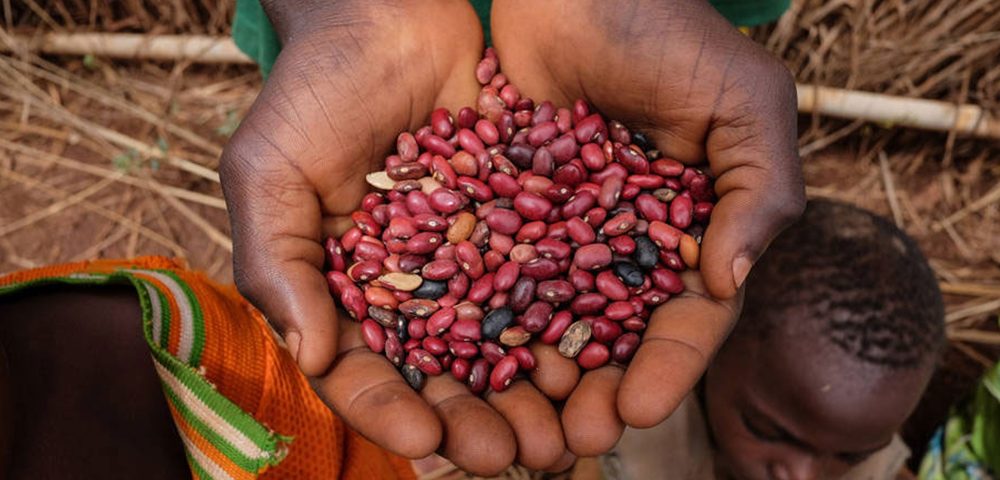United Nations resolutions focus on plant health and food safety

FAO celebrate the decision made by the United Nations to create two new world days and a whole year dedicated to fundamental issues as food safety and nutrition worldwide.
The General Assembly of the United Nations has approved three new resolutions that rise into three awareness-raising initiatives, focusing on plant health, food safety and legumes.
FAO and the Secretariat of the International Plant Protection Convention (IPPC) – which houses FAO itself – welcomed the decision to proclaim 2020 as the “International Year of Plant Protection”.
Up to 40% of the world’s food production losses every year due pest, this is the reason why is vitally important to generate the conditions to plant health, this is positive for both consumers and policy makers.
Only in economic terms, plant diseases cost to the world economy about 220 billion US dollars annually and invasive insects about 70 billion.
“The International year of Plant Health” is a key initiative to highlight the importance of Plant Health to improve food safety, protect the environment, the biodiversity and impulse economic development” mentioned Maria Helena Semedo, Deputy Director of FAO.
Meanwhile, from now on, “World Legumes Day” will celebrated on February 10, keeping alive the positive impulse towards healthy plants, which are nutritious, rich in proteins and fix nitrogen, after the successful campaign of “International Legumes year” carried out 2016 by FAO. Legumes production it also contributes to a sustainable food industry.
In addition, June 7th it will be the “World Food Safety Day”, giving a recognition to an increasingly important issue to a highly interconnected food chain worldwide that we have today. FAO acknowledge with satisfaction that the UN resolution expressly recognized that “there is no food security without food safety”.
Plant health
The General Assembly of the United Nations invited FAO, together with the Secretariat of the IPPC, to act as the lead agency to the activities related to the “International Year of Plant Health”, and entrust governments, civil society and the private initiative to participate at a global, national and regional level. Among the thousands of events organized around the world in 2020, is going to be an International Conference on Plant Health.
Finland proposed for the first time in 2015 to celebrate this international year as the governing body of the International Plant Protection Convention. In July 2017, the FAO Conference adopted a resolution to support this proposal.
“Pests and diseases do not have a passport or comply with immigration regulations and, therefore, preventing the spread of these organisms is largely an international effort that requires the collaboration of all countries participation. For this reason, Finland proposed to proclaim 2020 as the “International Year of Plant Health”, explained Jari Leppä, Minister of Agriculture and Forestry of Finland.
“Despite the growing impact of plant pests and diseases, resources to address the problem are scarce”, Semedo warned. We hope that this new “International Year of Plant Health” – he added – will encourage greater global collaboration to support plant health policies at all levels, which will contribute significantly to the Sustainable Development Agenda.
Food Safety
Contaminated food cause more than 200 diseases worldwide, including some types of cancer, and highlight how food safety and the fight to hunger eradication go far beyond of production and commercialization.
Foodborne diseases affect about 600 million people each year and represent a serious problem for human health, especially to young children and those living in low-income regions of the world. In addition, safe foods contribute positively to trade, employment and poverty eradication.
The UN resolution urges FAO and the World Health Organization to facilitate the celebration of the World Food Safety Day, promoted for the first time by Costa Rica, and to help address the urgent need to raise awareness among the population about the global importance of improving food safety.
The resolution also recognizes the key role played by the Codex Alimentarius Commission – jointly led by FAO and WHO – and the Agreement of the World Trade Organization on the Application of Sanitary, phytosanitary and food safety measures. FAO works closely with States Members to improve the capacity to meet international requirements and help formulate standards to improve global food safety.
FAO and WHO will jointly organize two major international conferences on food safety in 2019, one in Ethiopia in February and another in Switzerland in April.
Legume
The world Legume Day, promote by Burkinan Faso, based on the successful “International Legume Year” organized by FAO in 2016.
Legume crops – such as lentils, beans, peas and chickpeas – have multiple virtues, since they are sources of abundant proteins and plant-based amino acids resources for human consumption and offer invaluable ecosystem services, thanks to their capacity – when they are planted as protective crops or expressly to produce food – of fixing atmospheric nitrogen in soils.
This means, some cereals cultivated after a soil with legumes crops produce a 1.5 tons more than those preceded by a non-legume crops, which is equivalent to 100 kg of nitrogen fertilizer effect.
The General Assembly also emphasized that legume crops can play an important role in improving gender equity, recalling that women tend to be concerned with them and highlighting their high iron content, which contributes significantly to women’s health in reproductive age. Legumes are also important sources of vitamin B, magnesium, potassium, phosphorus and zinc, and offer a dietary option richer in fiber and with fewer calories than cereals.
Source: https://www.elmundo.cr


